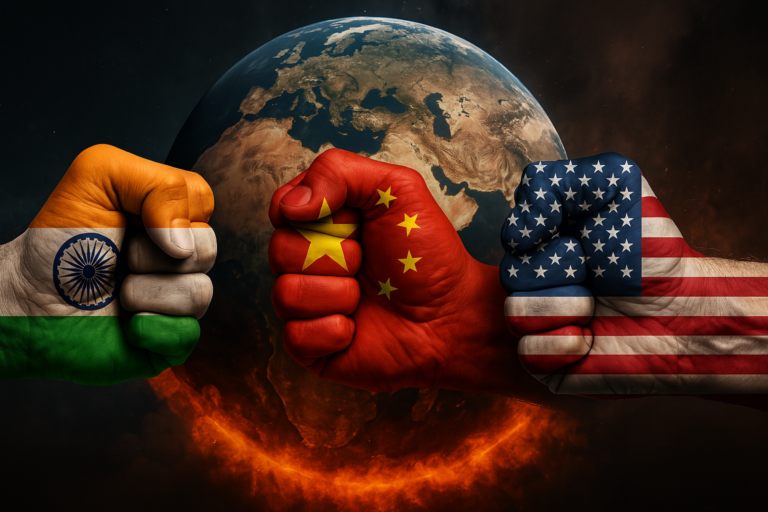
Welcome to Suchak News, where we honor one of India’s most visionary leaders and renowned economists, Dr. Manmohan Singh. Known as the architect of modern India’s economy, his calm leadership and transformative policies have left an everlasting legacy. On December 26, 2024, at the age of 92, Dr. Singh passed away at AIIMS Hospital, Delhi, leaving the nation mourning the loss of a true statesman.
Early Life: A Visionary is Born
Born on September 26, 1932, in Gah village (then part of undivided Punjab, British India), Dr. Singh’s brilliance was evident from a young age. After Partition, his family settled in India, where he began a journey of unparalleled academic and professional excellence.
Dr. Singh often credited his early education for instilling in him a passion for learning and a desire to contribute to society. His humility, despite his intellectual prowess, endeared him to teachers and peers alike, shaping the foundation of a leader committed to public service.
Academic Prowess: Shaping a Genius
Dr. Manmohan Singh pursued his higher education at Punjab University, Cambridge University, and Oxford University, focusing on Economics. His expertise was not limited to academia—his profound understanding of global and Indian economic systems enabled him to lay the foundation for India’s rise as an economic power.
His doctoral thesis at Oxford on India’s export competitiveness became a seminal work, underscoring his foresight into the challenges and opportunities awaiting the Indian economy. This academic rigor set the stage for his transformative role in public policy.
The 1991 Economic Reforms: India’s Turning Point
India’s economic crisis of 1991 was a defining moment in the nation’s history. With foreign exchange reserves almost depleted, the country faced an uncertain future. Enter Dr. Manmohan Singh, appointed Finance Minister by Prime Minister P.V. Narasimha Rao.
Dr. Singh’s reforms ended the License Raj, welcomed foreign investments, and liberalized India’s economy. These changes sparked industrial growth, boosted entrepreneurship, and positioned India on the global economic map. His policies laid the groundwork for today’s thriving startup ecosystem and the rise of a dynamic middle class.
One of the most quoted moments of his career came during his 1991 Budget speech, where he declared, “No power on Earth can stop an idea whose time has come.” This statement symbolized the dawn of a new era for India.
Mastering the 2008 Global Financial Crisis
When the 2008 global financial crisis threatened economies worldwide, Dr. Singh, as Prime Minister, shielded India from major repercussions. His quick implementation of economic stimulus packages and focus on strengthening financial institutions ensured stability. Under his leadership, India maintained an impressive GDP growth rate of 8.5%, even during global turmoil.
His background as an economist allowed him to foresee challenges and craft policies that balanced immediate needs with long-term stability. This period highlighted his ability to lead during adversity, earning India global respect.
Leadership: Integrity and Humility
Dr. Singh’s leadership style was a class apart—calm, humble, and focused on results rather than rhetoric. He avoided political theatrics, earning admiration even from critics. His integrity and dedication to the nation stood as an example of true statesmanship.
Dr. Singh’s quiet demeanor often masked the depth of his resolve. He believed in letting actions speak louder than words, a quality that resonated with citizens who valued substance over spectacle.
A Simple Yet Inspiring Personal Life
Dr. Singh’s personal life reflected his grounded personality. A devoted husband and father, he and his wife, Gursharan Kaur, embodied simplicity and mutual support. Their partnership showcased the importance of family values even amidst public service.
Despite his public stature, Dr. Singh’s humility was evident in his everyday interactions. He often credited his wife for being his pillar of strength, emphasizing the role of family in maintaining balance.
Beyond Economics: Championing Social Equality
Dr. Singh’s contributions weren’t limited to economic reforms. His vision extended to social justice and rural development. Landmark policies like MNREGA, the Right to Education Act, and various rural development programs demonstrated his commitment to empowering India’s marginalized communities.
These initiatives not only provided immediate relief but also created sustainable opportunities, transforming the lives of millions across rural India. His emphasis on inclusivity remains a cornerstone of his legacy.
Legacy: Lessons from a Lifetime of Service
Dr. Manmohan Singh’s life is a testament to the power of education, economic foresight, and social equity. His leadership taught us that true greatness lies in serving the nation and uplifting its people. His policies continue to inspire India’s growth trajectory.
He often emphasized that progress was a collective effort. “Development is not about numbers,” he said, “It’s about people.” This belief drove his approach to governance.
Honoring His Memory
As we bid farewell to Dr. Manmohan Singh, let us reflect on his unparalleled contributions and strive to uphold the values he cherished. His life reminds us that progress is achieved through dedication, knowledge, and a commitment to justice.
If you found this tribute insightful, please like and share it with others. Let us know in the comments which of Dr. Manmohan Singh’s contributions resonates with you the most. Subscribe to Suchak News and hit the bell icon for more inspiring stories about India’s greatest leaders—because staying informed is the best way to honor their legacy.



